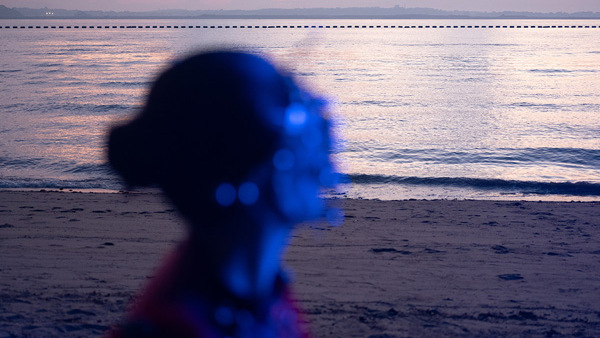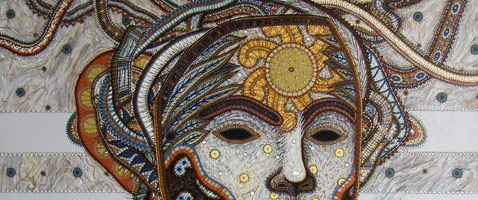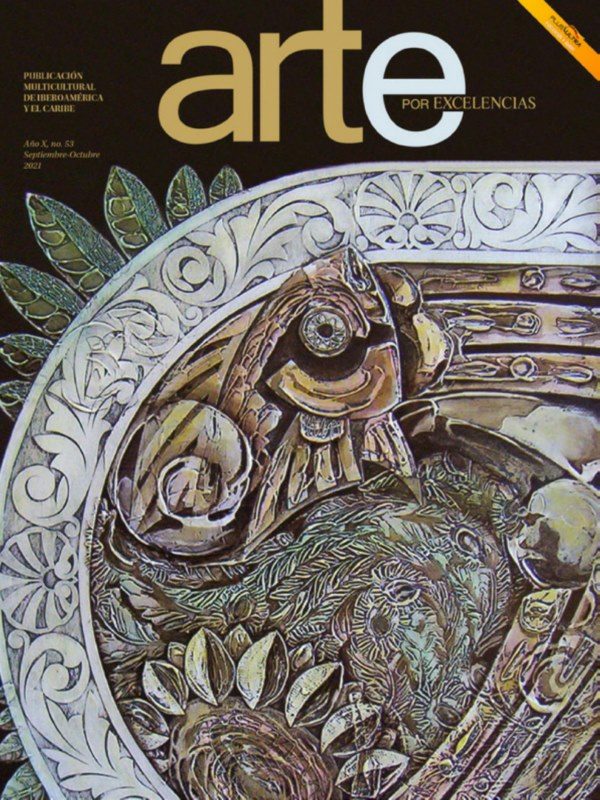Lopez Oliva: the poetic art of displacement
Kirenia Rodriguez Puerto
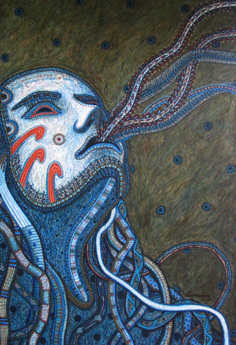 […] The declaration of a vast knowledge system pointed out by the artist, the search for signal plurality in his work, and constant theme-iconographic motives (masks and dramatization), along with baroque morphology, compromise –unavoidably– critical interpretations on Lopez Oliva’s artworks.
[…] The declaration of a vast knowledge system pointed out by the artist, the search for signal plurality in his work, and constant theme-iconographic motives (masks and dramatization), along with baroque morphology, compromise –unavoidably– critical interpretations on Lopez Oliva’s artworks.
[…] The Caribbean and carnivals have been the mask’s ultimate stages in its cultural and symbolic dimension; from its primary acceptation as attribute, component of an outfit or costume to its allegory of cultural resistance in the region. […] The masks have turned into artistic motives with significant high values. Values of collective freedom, promoted by festivities, ascribe readings related to cultural trasvestism or attributes to hide underlying realities. […] The mask is also understood as allegory of cultural resistance. The intrinsic duality linked to the bearer and its essence of ambiguity or façade, favors a model of philosophic-literary comprehension of Caribbean regional identity’s components.
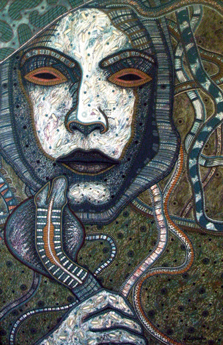 […] Accurately tackled on Cuban Art, masks and their representations gain momentum with Lopez Oliva, and reflect an almost-unknown theme strip in the island’s contemporary scene. In his proposals, the Caribbean and its masks are displayed from the philosophical perception of human essences, from ontological metaphor; just as the artist said: “[…] the reality is also carnival and theater.” The mask doesn’t entails the incidental character of opening and liberation space, but it acquires the permanent will of existence and daily going; therefore, it’s inherent to mankind. His characters not only carry them, they also interact or go without them.
[…] Accurately tackled on Cuban Art, masks and their representations gain momentum with Lopez Oliva, and reflect an almost-unknown theme strip in the island’s contemporary scene. In his proposals, the Caribbean and its masks are displayed from the philosophical perception of human essences, from ontological metaphor; just as the artist said: “[…] the reality is also carnival and theater.” The mask doesn’t entails the incidental character of opening and liberation space, but it acquires the permanent will of existence and daily going; therefore, it’s inherent to mankind. His characters not only carry them, they also interact or go without them.
Mankind passes by among facades depending on social roles and vital expressions. Masks become essence, more than adornments, accessories or outfits and we perceive them through the perspective of people who take them as cultural expression. “In my case, my paintings display no mask, but their own faces are masks; and I do think that it’s mystery, doubt, adventure, passion and also hypocrisy, the most harmful aspect of human species.”
Self-referential perspective turns into important analytical coordinate: the vital experience of childhood, artistic-critic duality or family links are expressed as anthropophagic attitude. His world doesn’t go around the work, but it’s represented on it. […]
Havana, June 3, 2010
To visit the exhibition CLICK HERE
Related Publications
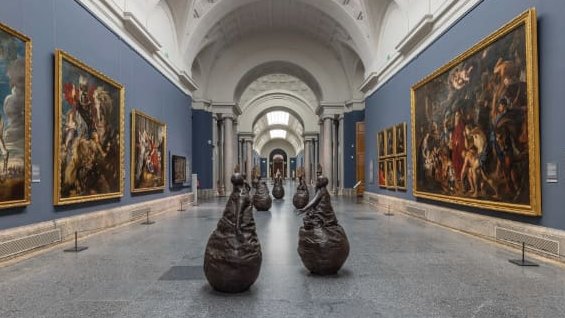
Museo del Prado | Juan Muñoz. Stories of Art
January 07, 2026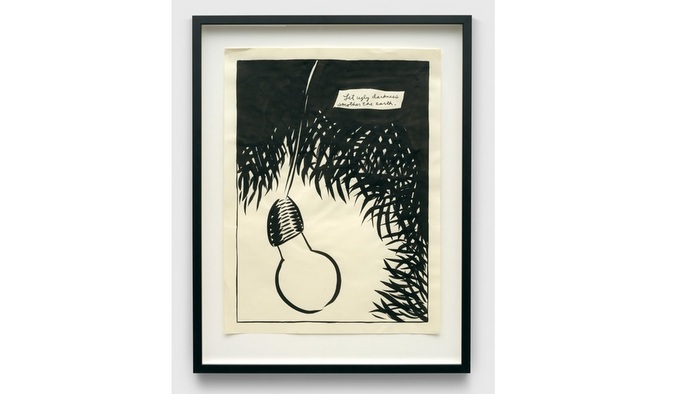
Musée national Picasso-Paris. Raymond Pettibon. Underground
January 06, 2026